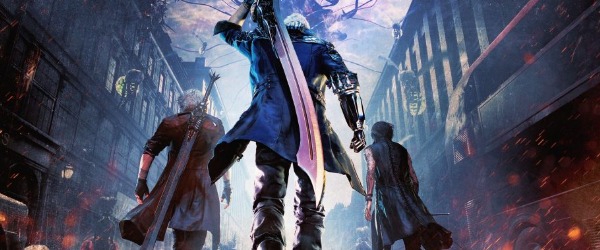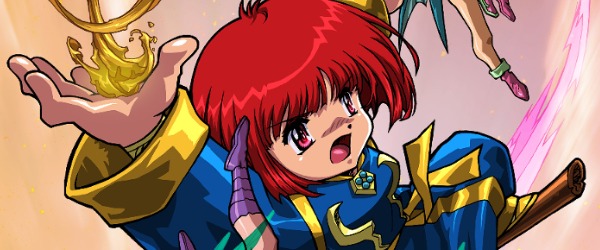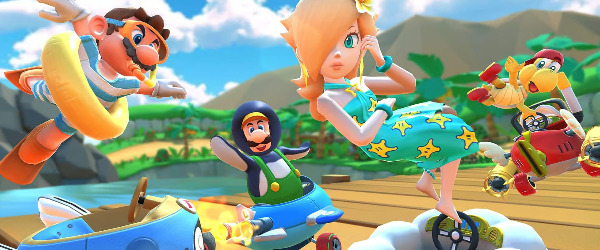
The Patriot Act: A Metal Gear Solid 2: Sons of Liberty Retrospective - Article
by Issa Maki , posted on 22 November 2021 / 5,352 ViewsBy 2001, the wait was over. After a false start of the generation led by Sega's tragically ill-fated Dreamcast and a lackluster PlayStation 2 launch library, gamers across the globe bided their time – and were rewarded handsomely. Between the release of Onimusha: Warlords in January and Final Fantasy X in December, a virtual deluge of modern classics inundated the community: Devil May Cry, Super Smash Bros. Melee, Halo: Combat Evolved, Grand Theft Auto III, Advance Wars, Legend of Zelda: Oracle of Ages/Seasons, Baldur's Gate II: Shadows of Amn, Diablo II: Lord of Destruction... there wasn't a single system left out of the party. But in the eight months following the demo and release of Metal Gear Solid 2: Sons of Liberty, the world would be forever changed; two decades later, its disturbing prescience is more relevant than it was back when people ignored the message.
Hideo Kojima and team had done their homework. The Western audience's unfamiliarity with Metal Gear 2: Solid Snake and an eight-year gap in development cycles helped elevate Metal Gear Solid beyond expectations, and there were big shoes to fill. By harnessing the power of the next-gen systems, Kojima Productions crafted one of the most culturally significant video games ever made. If Sons of Liberty isn't the best Metal Gear, it's certainly the greatest sequel of all time. No disrespect to Super Mario Bros. 3 or Barbie Horse Adventures: Mystery Ride, but in the 20 years since its release, I have yet to see a game improve on its predecessor so dramatically.
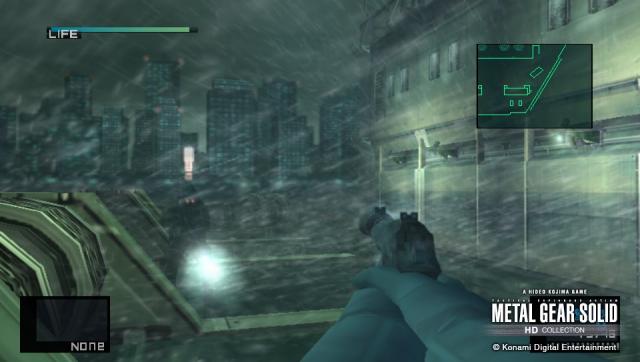
The opening tutorial alone demonstrates how much of a step forward Sons of Liberty takes, and its footprint is significant. Most notable are the first-person aiming and camera controls. Being able to lean slightly in one direction or stand on your tippy-toes is quaint by today's standards, but only because Metal Gear Solid 2 helped establish those boundaries. The ability to fire from cover with laser-guided precision would serve as a blueprint for the future. As much credit as Resident Evil 4 deserves for its influence on gaming, Metal Gear Solid 2 should get more recognition. Shooting out the light shows a level of interactivity with the environment previously unattainable; a well-placed fire extinguisher or bag of flour can make all the difference during a tense escape.
This even applies to enemies. Those traumatized by cameras from Metal Gear Solid can take their revenge by surgically removing any from the area. Destroying an enemy radio before attempting to engage renders them unable to call for reinforcements; this comes in handy if a hold-up goes the wrong way or a quick cameo appearance is needed to get to the next room. Once you're distracting soldiers with empty gun clips, using them as human shields, and running from pursuit leaving wet footprints and trails of blood to follow, it's hard to imagine any sequel so advanced. Terminator 2: Judgment Day is the closest analogy that comes to mind – and that's a movie. I'll always be curious how 1st and 3rd person shooters didn't merge together decades ago; it was done back on PlayStation 2, and why wouldn't you want both options?
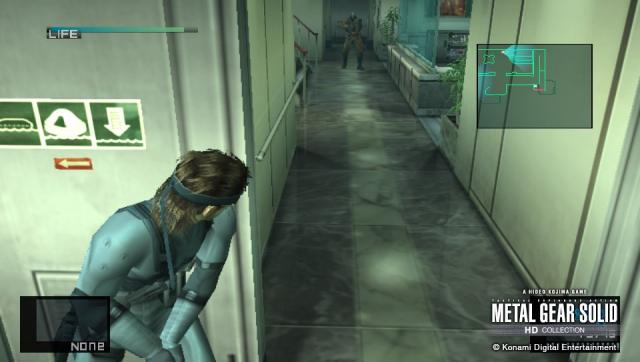
In a direct parallel with the gameplay, Sons of Liberty's story elevates far beyond the scope of Metal Gear Solid, despite being a retelling of it. What starts off as your standard blood feud between a genetically-engineered super soldier and his brother (the talking arm), rapidly shifts gears into a darkly-comic Shakespearean tale where everybody is lying to each other, the audience is the last one to comprehend the disturbing context between the lines, and the writers retreat behind the privacy of their notes.
At this point, we might as well address the elephant in the room: in Metal Gear Solid 2: Sons of Liberty, you don't play as Solid Snake for the vast majority of the game – you play as series newcomer Raiden. The largely negative fan reaction to this revelation would forever alter the trajectory of the series, fragmenting the fandom into those who were on the same page as Kojima, and those who weren't. These lost sheep would be won back after 'redeeming' Raiden by turning him into a vampiric, cyborg cannibal in Metal Gear Rising: Revengeance, but for my money I'll take his Sons of Liberty's incarnation any day of the week. He may be getting played by everything under the sun, but nobody truly appreciates that he was quite the player himself.
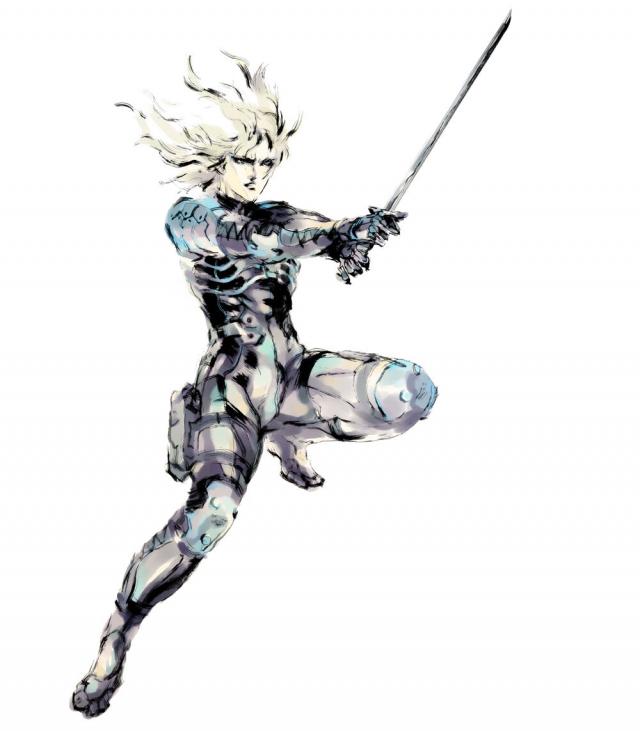
What most people misunderstand about Raiden is that by playing as him, it allows the narrative to develop Snake from an angle akin to a third-person perspective: when we fight alongside Snake inside Arsenal Gear, we get to see him in action and why he's the warrior of legend. When he's accidentally crouching behind guard's butts, or being shot to death trying to worm his way into a vent, it can be hard to remember. I also don't think fans want to admit the possibility that Raiden could kick Snake's ass loud and hard. Think about it: Snake is a rapidly aging clone grown from cells taken from a man in his 50's; Raiden's been a child soldier since he was six years old and by ten he was the commander of an elite unit. He's also spent thousands of hours in VR training, recreating classified black operations. Look at how he handles the High-Frequency Blade in the first cutscene he uses it in – he's clearly had training with a sword! If you don't know why they called him 'Jack the Ripper', he can show you. By Metal Gear Solid 4: Guns of the Patriots, would anyone be hedging their bets on Old Snake? It's a shame fans couldn't accept Raiden; I can only imagine what Metal Gear Solid 3 could have been with him as the stealthy, sword-wielding, Grey Fox-inspired successor he was meant to become, especially since we already had a taste for it in VR Missions back in 1998.
One angle of the whole 'play' in Sons of the Liberty involves the misunderstood portion of the S3 Plan – Raiden's infiltration of the Big Shell. From the moment players see him swimming in the water, the entire scenario is a recreation of the Shadow Moses incident from Metal Gear Solid, even if they aren't consciously aware of it; this could be something as subtle as enemy placements in a particular room or a boss fight mirroring the structure of the previous game.
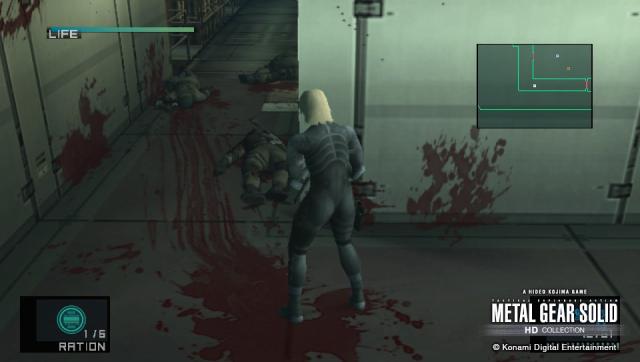
A perfect example is the 'Colonel' explaining the Soliton Radar. This is word-for-word the exact same dialogue between Campbell, Mei Ling, and Snake from Metal Gear Solid – except the 'Colonel' (who is actually an AI) is reading both Campbell's and Mei Ling's lines, with the original references to Snake having been edited out or worked around. Add to this that Raiden's original codename for the mission was 'Snake', and the pervasiveness of the simulation is overwhelming, yet somehow hiding in plain sight.
Vamp's hallway of blood echoing the Cyborg Ninja's memorable rampage, the guiding of a remote-controlled missile (which dates back to 1987), a Stinger-battle with an aerial vehicle, the deaths of Richard Ames and President Johnson mimicking the lost DARPA chief and ARMSTech President, Metal Gear RAY standing in for REX, the appearance of another 'Deepthroat', the Patriot AI virus being a digital counterpart to the FOXDIE variant that Snake unwittingly spread throughout the genome soldiers, Dead Cell representing the terrorist threat of FOXHOUND... all of it an orchestrated program that went off without a hitch. Even the uncalculated appearance of the real Solid Snake wasn't enough to stop the Patriot AI from achieving its ultimate goal: to delete itself off of all digital media, so nobody ever knows it exists.
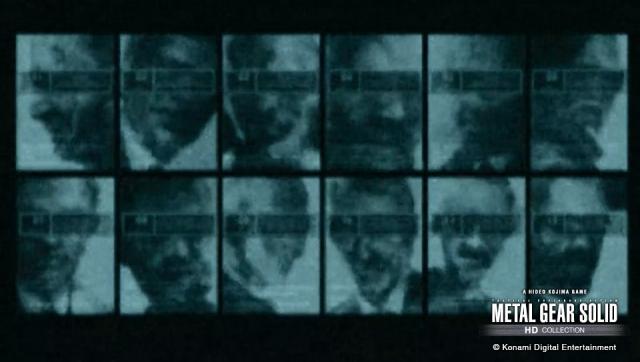
You see, the basic through line of Metal Gear Solid 2 is that an artificial intelligence is controlling America and uses the internet to manipulate the flow of digital information to dominate society, and eventually guide the world towards the next stage of evolution. To this end, the Patriot AI censors what it doesn't want people to know and decides what truths get to 'exist'. The non-sensical phrase 'La Li Lu Le Lo' uttered throughout Sons of Liberty is literal censorship; when certain people try to say the words 'the Patriots' in an attempt to identify them, that's what comes out of their mouths, regardless of what they meant to convey. That's the extent of the Patriot's influence; in game it's known as the Selection for Societal Sanity, and we're about to explore how prevalent it already is in the world today.
The most disturbing aspects of Sons of Liberty have already happened. Look at YouTube banning conspiracy theorists like Alex Jones or the hundreds of thousands of Facebook pages that have been deleted for spreading vaccine 'misinformation' – are we pretending the S3 Plan isn't already in place right now? Don't you find it strange we still hear about Chernobyl more often than Fukushima, despite the latter being an ongoing problem for over a decade? What if I told you that on September 10th 2001, Secretary of Defense Donald Rumsfeld went on live TV and announced that the White House couldn't account for over two trillion dollars of taxpayer money? Because it happened, and the timing was quite a coincidence – it's never been mentioned since! Metal Gear Solid 2 being removed from all digital storefronts on the eve of its 20th anniversary might say more than people think. Do you remember when the George Orwell novel 1984 was erased from the eBooks of those who had already purchased and downloaded it? Let's not forget that Sons of Liberty came out two months after the events of 9/11; the only reason Kojima could even say any of these things and get away with it is because video games were still flying under the radar. The last notable AAA game with anything to say about society was DmC: Devil May Cry, which interestingly enough has even more unjustified hate directed towards it. Another coincidence, or might there actually exist issues that need a forum and are going ignored at our peril?
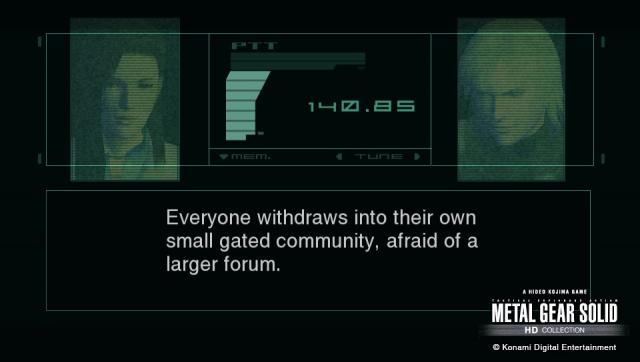
A trio of complementary texts accompany Metal Gear Solid 2, with one of them being of such value that even the whereabouts of its fictional author are still unknown to this day. Conceptually, text-based narratives might not seem ideal for expanding upon a video game, but the Perfect Works manual accompanying Xenogears a few years prior proved that a detailed book can be just as satisfying a sequel, but without any of the pitfalls that come with attempting to expand on development.
The first piece is actually a 'review' of the third, essentially serving as a recap of the events portrayed in Metal Gear Solid. It serves two purposes: to bring new players up to speed and to entice fans into exploring further. Other than saying it does this satisfactorily, there's little else to mention.
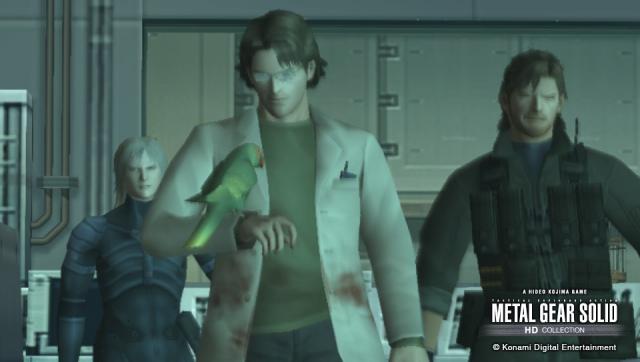
Second up is The Shocking Conspiracy of Shadow Moses by Gary McGolden. Resembling tabloid journalism, this proposes to be a first-hand account of the author's visit to Shadow Moses to verify their occurrence. Signs concerning its fictional nature appear as early as Gary using a tuna for insulation as he swims to the island (Snake was given an anti-freezing peptide and thermal suit to brave these waters), but it's an entertaining read nonetheless, and like any good article in the Sun or Star has a hint of truth in it.
The heart of the matter is In the Darkness of Shadow Moses: The Unofficial Truth. Written by sultry, cigarette-smoking Russian weapon specialist, Nastasha Romanenko, this novella expands on the story presented in Metal Gear Solid from her perspective. Not only do we learn of her having been coerced into helping Snake by the Patriots, it's revealed that Richard Ames (who is briefly featured in Sons of Liberty) was the true conductor of the Shadow Moses operation at their behest. Considerable character development from the likes of Nastasha and Ames can be found here, with Roy Campbell and even Naomi Hunter receiving some extra seasoning for their roles. A brief aside involving Liquid Snake's acknowledgment of the Patriots is a major highlight, but I will say no more. In the Darkness of Shadow Moses is one of the most underappreciated facets of the entire Metal Gear series, despite being required reading for lore enthusiasts. As I mentioned, there is a fracture within the fanbase and appreciation of these works serves as more evidence of its existence.
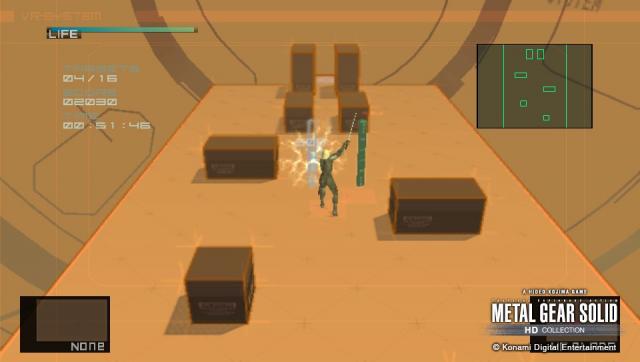
In an effort to quell the fanbase that reviled Raiden and was unable to comprehend the vision of the future being shown to them, a slew of additional content was stuffed into the 2002 Xbox release. Dubbed Substance, not only did this version of the game convince me that ports were unfavorable back in the day, it established the importance of high and stable framerates. Some of what can be found here is decent, but the rest almost diminishes the quality of the original release.
First up are the VR Missions and their varying levels of attention. As someone who had a 96.3% completion rate on Metal Gear Solid: VR Missions in high school, it's fair to say that I'm a sucker for a virtual training session. My problem is that the focus is on quantity: there are 500 missions of all types available, but only around 60 of them are any good. The VR Missions here lack the intimacy of their 1998 counterparts, despite having the potential to be exponentially superior. When you finished Nikita training on PlayStation, you 'knew' that weapon in a Biblical sense; in Substance, you're simply left wanting more. The Stinger and HF-Blade are awesome weapons, but the last thing the game will do is let you learn to use them; rather, there's bomb disposal and hold-up training to partake in. A degree of spite can be felt in these modes, particularly when it comes to Snake.
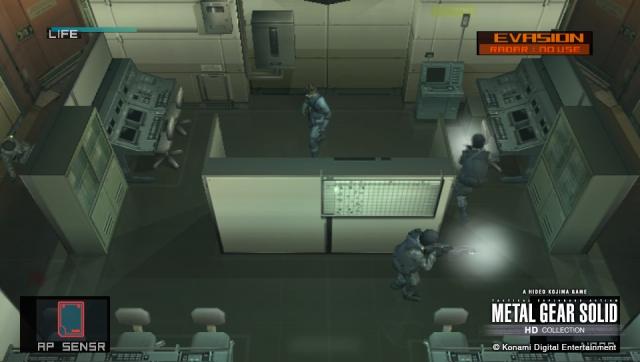
Snake's set of missions have a superfluous aura about them, with many being the same as Raiden's, except with more aggressive enemy placement or less equipment to work with. These minor changes serve as a fairly blunt commentary towards those complaining about not being able to play as Snake for the entirety of MGS2. Now they can play as Solid Snake, his J.G. Plisken alter ego, MGS1 Snake, and Tuxedo Snake! By the time you're deciding what character to take skateboarding around the Big Shell, they should have just made a mode where you're Snake, every enemy is Snake, you shoot Snakes out of a Snake, and the goal is to save Snake from Snake. I call it: Dave Mode.
That's not all! Also included in Substance are the Snake Tales, alternate reality scenarios where you play as Snake in rearranged sections of Raiden's portion of MGS2. Though I give them credit for providing a decent challenge, the poorly written storylines and unfair design make a cheap addition feel even tackier. Had Kojima spent some time with Snake Tales, he may have seen how damaging removing the Soliton Radar is to the overall flow of the gameplay. Instead, he would spend the next five years making a sequel that holds up so poorly, its own fans won't play the original release.
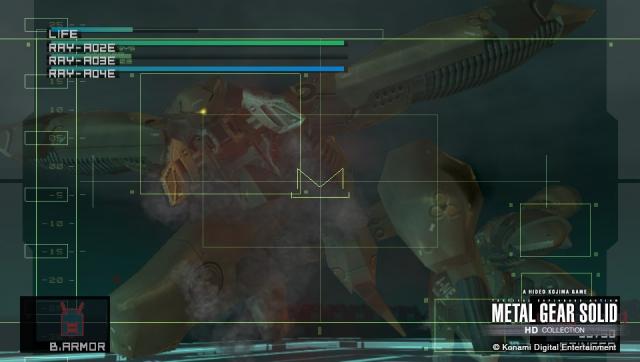
Of all the extra missions, they should have done more with First-Person Mode. Being able to move and perform all of the character's actions from a new perspective is a complete game changer and it's a wonder this wasn't a feature that was implemented into the core story. This would have extended its lifespan further than two sets of dog tags, and really could have moved the series in a different direction.
If you would have told me that a version of Sons of Liberty would release 11 years later that was somehow inferior to the Xbox iteration... I probably would have believed you. After buying a digital copy I can do nothing but glare at, I only have myself to blame.
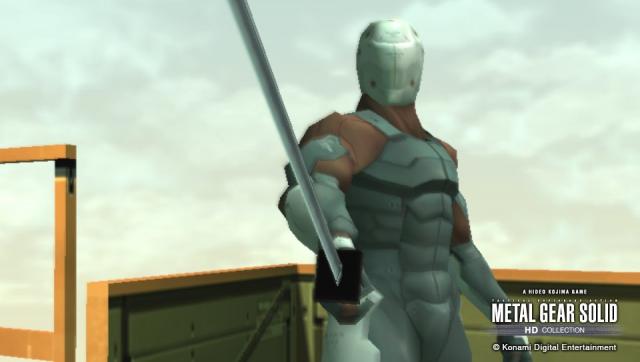
The second of two releases, the Metal Gear Solid HD Collection on PlayStation Vita is not the champion we needed. It includes more abundant framerate problems than its Xbox ancestor and unnecessary, mandatory touch controls that damage the once fluid gameplay. I've revisited the PS2, Xbox, PS3, and PS Vita versions of Metal Gear Solid 2 this past month, and there was only one time I accidentally blew a guy's brains out because of button issues (and I still feel awful about it). It also has a habit of freezing when you're trying to march young women through pillars of fire. Outside of its ability to 'transfarr' your save (not including bonus missions, for some reason) to a PS3, the only positive thing I can say about the Vita version of Sons of Liberty is that it's by far my cat's favorite for me to play – and that has more to do with Vita's sleek design than anything.
Emblematic of the division, fierce debate rages within the community as to which is the better game: Sons of Liberty or Snake Eater. Why this is an argument is beyond me: one is the most improved sequel of all time, containing a subversive story that grows more relevant towards modern society with every passing year; the other runs at half the framerate of its predecessor, needlessly complicates the series' lore by adding a backstory that didn't need to exist, and isn't even part of the debate without Metal Gear Solid 4's camera system grafted onto it. I look at it like this: the M9 tranquilizer pistol introduced in MGS2 has been featured in every subsequent game – even retaining its broken slide (to keep it balanced from a gameplay perspective). By contrast, every major sub-system featured in MGS3 (food, camouflage, medical treatments, etc.) was either removed completely, or became automatically calculated behind the scenes. Which one sounds like the better game to you? Of course, it's only the real fans who know that the best Metal Gear is actually a Teen-rated, multiplayer, handheld title – but that's a story for another day.
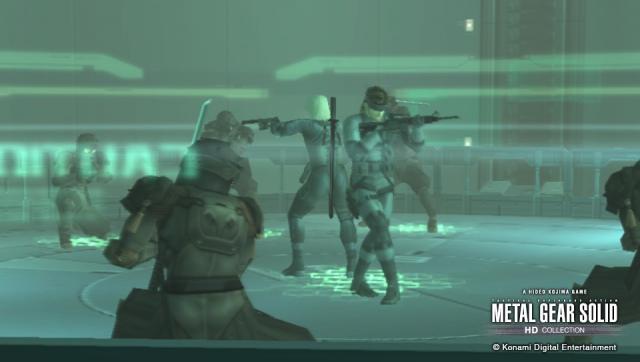
The 20th anniversary of Sons of Liberty has already marched past us, and looking back we should salute it for its importance in both the video game world and our own. Perhaps a Ralph Nader/Hideo Kojima 2004 Presidential ticket was what we needed to stop our reality from becoming closer to the one Metal Gear tried to warn us about, but we're through the looking glass. There, the Patriots were stopped in 2014. Here in 2021, they're just getting started. The first time I heard about PRISM was in 2002 – a program that the U.S. Government didn't officially acknowledge until 2013; will I even hear about the next one, or will the S3 Plan swallow it beforehand? What concerns me most about Sons of Liberty is that in the 20 years since its release, the Patriots have largely been proven correct. When 40% of American children think bacon and hot dogs come from plants, perhaps the internet is preventing evolution, because in my lifetime it doesn't seem like it's helped as much as everyone believes. If you once worked with a teenager who didn't know how to use a broom, what would you think?
Solid Snake said we have the magic of the digital age to shape the future of the world into the one we desire. The problem is that he said that 20 years ago, the message fell on deaf ears, and that potential has now been usurped. Everything is at stake if it gets ignored again, and with its removal from online stores, the outlook doesn't look good. Education and love are still our greatest weapons; the time to use them is now. Why? Because censorship is a corrupt path to enlightenment, only available to the dominated. Prove to the Patriots you don't need their influence; if you fail, Oscar Mayer is going to start selling watering cans to adults covering hot dogs in dirt, and I won't be held responsible for teaching them how to turn on the hose.
More Articles
I couldn't think of a good place to discuss it in the article, but I wanted to mention the AI version of Rose as my favorite 'character'. Similar to Saruman in 'The Lord of the Rings' (who we don't know exactly when he became evil), the line between Rose and her AI counterpart is quite blurred. Before the final scene, I like to think that Rose only had a handful of appearances (if she was present at all) throughout the various Codec conversations and was (unknowingly) talking to an AI Raiden for the vast majority of the mission. The line: "Whether this is real or a dream, I'll keep watching you." comes to mind; it just doesn't sound like something a girlfriend would say and it's said early enough in the operation to raise an eyebrow over who/what said it. People might not like Rose, but AI Rose definitely has a couple of powerful statements we should all take into consideration.
The atmosphere in this game is outstanding. I know that many people dislike Raiden, but I can't think of any other game which nails the thin line between humor and seriousness that good. You can do so many useless things in this game. It's really obsessed with detail. Only the boss enemies aren't as good as in the predecessor.
I may be one of those rare people that didn't care for the raiden change. I was pretty young when I played mgs1, didn't really care for the story that much or probably understood it all. It was the gameplay that did it for me, and the gameplay of mgs2 that I cared most for while playing it. Story was just a fun bonus filler in between. The gameplay was advertised state of the art, and it was.
It wasn't till mgs3 that I started to care about snake.
The best trailer of all time, best demo and possibly the best game of all time. Most of us metal gear fans tend to favor mgs3 as the best game ever, but looking back at prior and after the release of mgs2, this game is just as legendary as mgs3 and has a uniquess to it that will never be recaptured. The game was also ground breaking in several areas. I bought a ps2 metal gear limited edition bundle for this game.
MGS 2 was a great game, but at the time, we all felt duped and were angry, so none of us gave it its proper due. Had Kojima been forthright about Raiden instead of playing coy, it would have no doubt gotten the praise (among gamers) that it deserved.








